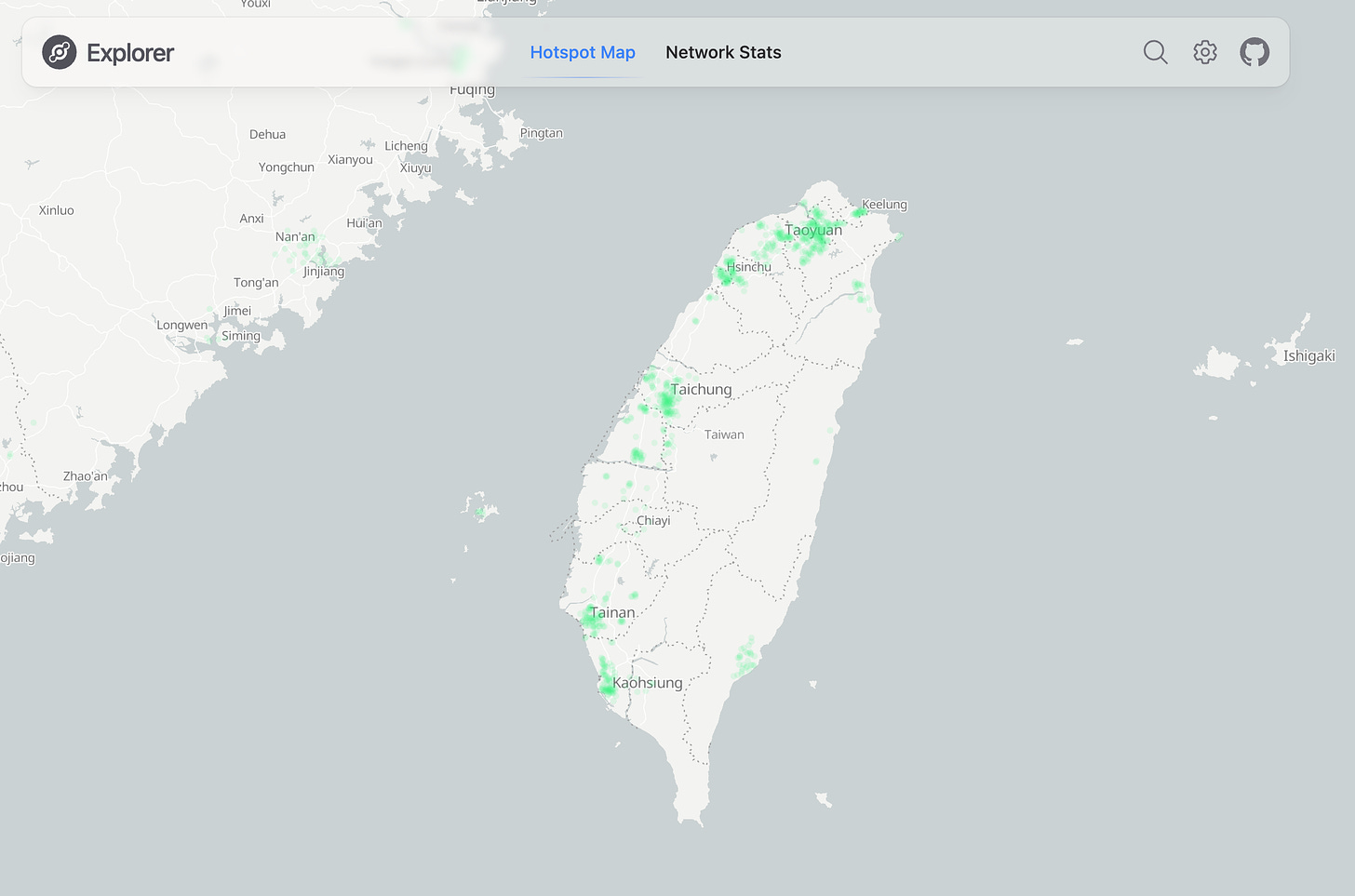Helium Mobile: The World's First Decentralized 5G Telecom Operator – Is Base Station Mining Worth It?
#581
GM,
A quick heads-up: Blocktrend will release an additional announcement tomorrow. It's good news, but I can only share it tomorrow. Now, let's get to the main topic.
Blocktrend has discussed many decentralized applications, such as Bitcoin being a decentralized transfer system, Ethereum as a decentralized computer, and IPFS as a decentralized hard drive. The focus of this article is Helium Mobile, which is quite interesting as it is the world's first decentralized 5G telecommunications provider.
Last week, Helium Mobile launched a $20 per month unlimited 5G internet plan in the United States, and residents in Miami could even experience it for an ultra-low monthly fee of $5. However, opinions about Helium on the internet are quite polarized. This article will first introduce what a decentralized telecommunications provider is and then discuss whether participating in Helium Mobile's base station mining model is worthwhile.
Let's start with a telecom provider in Taiwan that everyone can use but not many have heard of.
Circles.Life
Most Taiwanese people are customers of the three major telecom providers: Chunghwa Telecom, Far EasTone, and Taiwan Mobile. However, in recent years, some niche telecom providers have emerged, such as LINE MOBILE and ibon mobile from the Uni-President Group. Typically, their monthly subscription plans are more cost-effective than those of the three major telecom companies.
One such provider from Singapore is "Circles.Life," which emphasizes unlimited 4G internet without speed restrictions for just NT$466 per month. The key is a lifelong contract-free commitment, allowing users to switch providers at any time. This pricing is even more advantageous than Taiwan's 2018 "499 Chaos" without the need for a 30-month contract.
Perhaps some people are concerned about the signal and network quality of niche telecom providers. However, these emerging telecom providers don't actually build their own base stations; instead, they operate as Type 2 telecom service providers leasing numbers or bandwidth from the three major telecom companies. In theory, the signal quality and coverage should be similar to the three major telecom providers. "Circles.Life" operates more like a "sublandlord," focusing on providing users with diverse tariff plans.
The U.S.-based "Helium Mobile" is another such emerging telecom provider. Rather than building base stations from scratch, they provide services on existing infrastructure. Helium Mobile began its trial operation in 2023, and even Americans might not be familiar with it.
Base Station Mining
According to Helium Mobile's introduction:
Helium Mobile has launched a contract-free, $20 per month tariff plan across the United States, offering unlimited internet, calls, and messages. ... Helium Mobile emphasizes a people-centric network coverage, allowing customers to become network owners and operators. Similar to Airbnb and Uber, when you reduce monopolies and make customers owners, services improve, costs decrease, and everyone benefits. This is one of Helium Mobile's ways to lower costs and expand coverage.
Some people might misunderstand the focus, thinking Helium Mobile's main highlight is its more cost-effective and flexible tariff plans compared to traditional telecom providers. However, the real innovation is that Helium Mobile is a decentralized telecom provider—everyone can join as a base station for Helium Mobile, connecting to form a "People's Network."
There are two roles in participating in Helium Mobile: users and operators. Users seek stable signal quality, extensive coverage, and affordable tariff plans. However, operators are more unique. While base stations are typically set up by telecom providers, Helium Mobile allows regular individuals to set up base stations at home or outdoors, earning cryptocurrency in return.
People might ask, "Isn't the network quality and coverage rate going to be a disaster?"
Helium Mobile anticipated this question long ago. In 2022, Helium Mobile signed an agreement with T-Mobile, the third-largest telecom provider in the U.S., promising that wherever T-Mobile has a signal, Helium Mobile can use it as usual. The "People's Network" will be useful in remote areas or signal dead spots.
People can order base stations compatible with Helium Mobile, connect them to their own network, and set them up in places where T-Mobile's signal is weaker to provide network services for Helium Mobile users. Helium Mobile confirms whether the base station is diligently working based on the Proof of Coverage mechanism, rewarding it with the cryptocurrency "MOBILE."
In essence, this is a base station mining model. The contribution is not computational power, but network coverage. The earnings are not in BTC but in the MOBILE coins issued by Helium Mobile.
Mining emphasizes return on investment. The following image shows Helium Mobile's 5G base station, priced at $1,299 each. Additionally, there is an entry-level WiFi router (pure network), starting at $249.
These are all money-making tools! But how much can you actually earn? I found information from one of the equipment suppliers. As of September 26, a $1,299 base station can earn approximately 38,000 MOBILE coins per day, which is about $36.85. If the situation remains the same, it would take around 35 days to break even. The power consumption of these base stations is equivalent to that of a MacBook laptop, theoretically avoiding excessive electricity costs.
Helium Mobile envisions a future where different equipment suppliers can build various base stations based on the same set of specifications. Additionally, although most people connect their home networks, each household uses different telecom services. In Japan or the United States, some might even use satellite internet like Starlink. Therefore, Helium Mobile's coverage has the potential to exceed traditional telecom providers, offering stronger network resilience.
Ideally, users pay a cheaper monthly fee than T-Mobile but enjoy coverage from multiple telecom providers. However, despite the cost-effectiveness, the service has received mixed reviews online.
Mixed Reviews
A journalist from The Verge wrote a sarcastic article titled "Helium Mobile's Tariffs Are Super Cheap, but Only for the Bravest." The article criticizes Helium Mobile on three fronts: the unlimited plan is misleading, base station mining is not profitable, and a decentralized network is impractical.
The journalist claims that Helium Mobile's network is not truly unlimited but rather subject to speed reduction after exceeding 60 GB of usage (T-Mobile and Helium Mobile each have a 30 GB limit). He argues that this cannot be considered unlimited. Additionally, he cites a Reddit post where users expressed the opinion that investing in Helium Mobile mining machines is not worth the money. The original post reads:
"I'm considering buying a mining machine, but I know this field is developing rapidly. It's been about a year since I last paid attention to this project. How are things progressing now? Can you let me know the latest situation? Is Helium hotspot mining still profitable? How is everyone's earnings? Lastly, any advice on becoming a miner?"
The journalist might be confused, not realizing that Helium Mobile is a new product launched in August 2023, just four months ago. The post he quoted discusses a different product, Helium Hotspot, from Helium about a year ago. The highlight of the new Helium Mobile is that it provides 5G networks and operates as a telecom provider, no longer limited to just sharing WiFi hotspots.
Helium's network coverage in Taiwan is depicted in green, representing individuals sharing networks and earning cryptocurrency through Helium-compatible WiFi routers.
The article also highlights an interesting aspect—some telecom providers explicitly forbid users from using the network for business purposes or limit it to personal and non-commercial use. This situation draws parallels with the early days of Uber and Airbnb, where ordinary drivers could download the Uber app and operate as taxi drivers or regular landlords could upload property photos to Airbnb and engage in the hospitality business.
Similarly, individuals with network access at home who purchase Helium Mobile's 5G base stations can become telecom providers. Although Helium Mobile is in its early stages of operation, and most people's understanding of "decentralized telecom providers" is still limited, if Helium Mobile attracts more users and operators, traditional telecom companies might introduce various user terms to suppress those who bought 5G base stations, labeling such actions as illegal. It's not hard to imagine that some individuals might take risks and continue mining, even at the potential risk of being caught.
Governments can legislate and regulate centralized services, but when dealing with decentralized networks, addressing economic incentives is crucial. Although Helium Mobile establishes a decentralized telecom network, it fundamentally operates as a telecom company. While its network resilience may not match that of Bitcoin or Ethereum, it has traded that for a better user experience. U.S. users can experience a new decentralized telecom service without the need to learn entirely new concepts.
Blocktrend is an independent media platform sustained by reader-paid subscriptions. If you think the articles from Blocktrend are good, feel free to share this article, join the member-created Discord for discussion, or add this article to your Web3 records by collecting the Writing NFT.
In addition, please recommend Blocktrend to your friends and family. If you want to review past content published by Blocktrend, you can refer to the article list. As many readers often ask for my referral codes, I have compiled them into a single page for everyone's convenience. You are welcome to use them.







